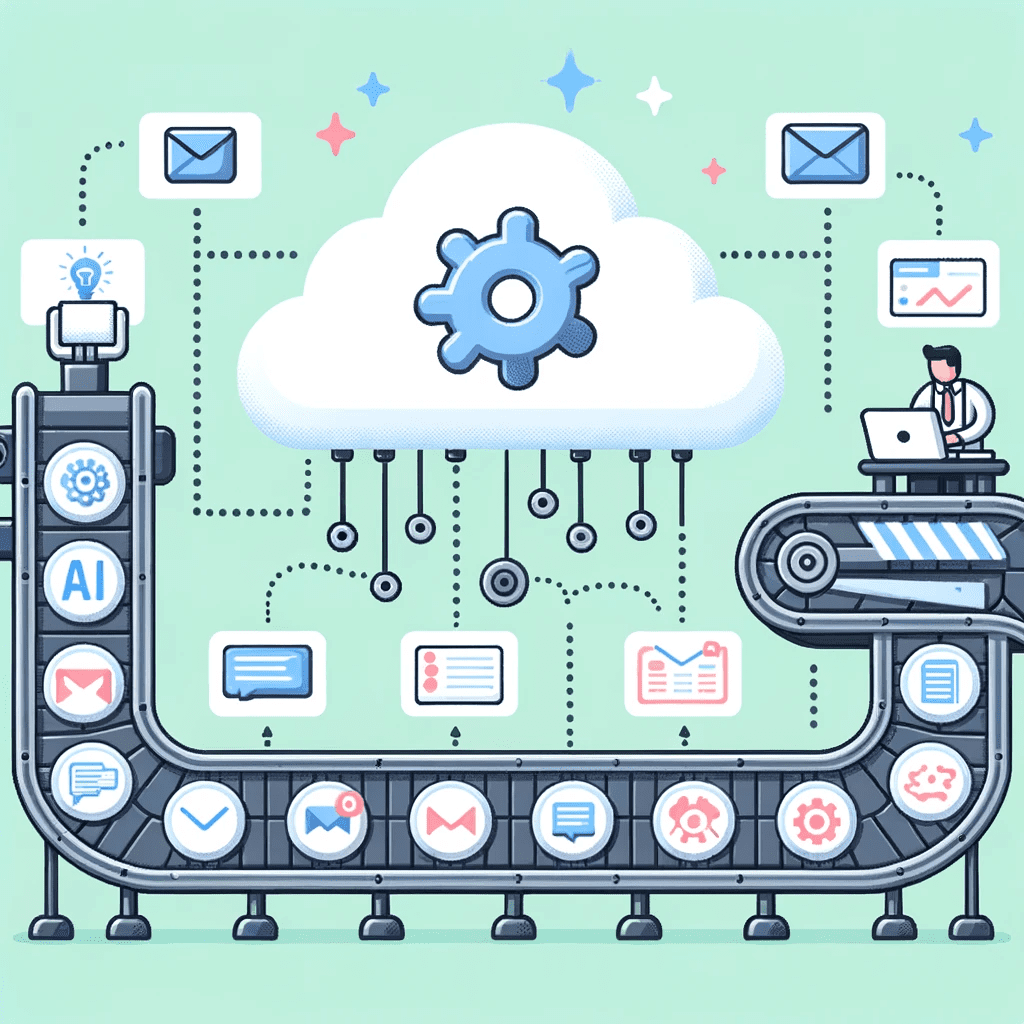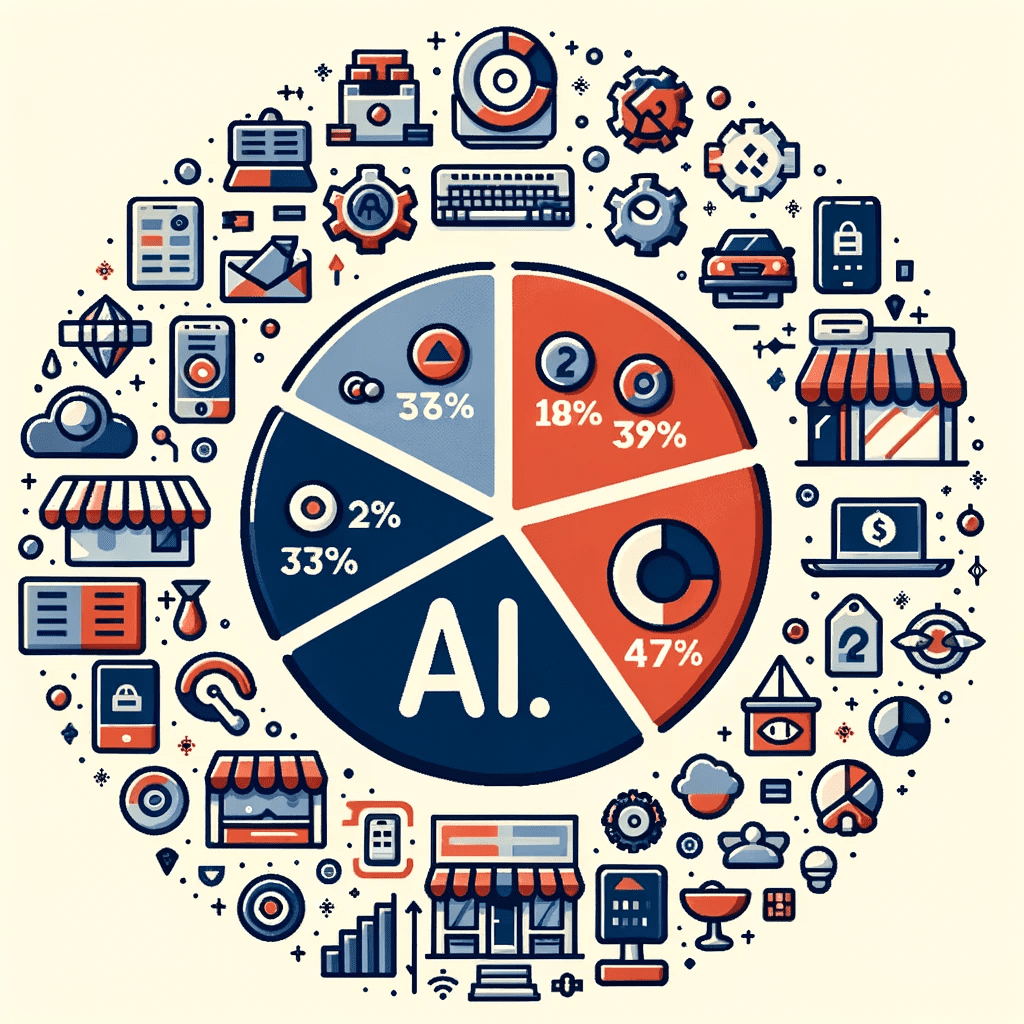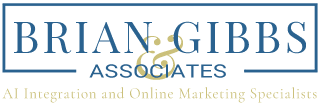AI for Small Businesses: A Comprehensive Guide to Unlocking Its Potential
Welcome to this comprehensive guide on AI for small businesses. In today’s rapidly evolving technological landscape, artificial intelligence (AI) has become a game-changer for businesses of all sizes. This guide aims to help small business owners understand the basics of AI, explore its benefits, learn how to implement it and uncover the various use cases in which AI can transform their operations. By the end, you will be equipped with the knowledge to embrace AI and unlock its potential for your small business.
Understanding the Significance of AI for Small Businesses

Small businesses can benefit in numerous ways from the use of artificial intelligence.
Understanding the basics of AI
Artificial intelligence refers to the simulation of human intelligence in machines that are programmed to think and learn like humans. It encompasses various subfields, such as machine learning and natural language processing, which enable computers to analyze data, make predictions, and comprehend and respond to human language.
How AI can benefit small businesses
AI offers a wide range of benefits for small businesses. It can help automate repetitive tasks, improve customer service through AI-powered chatbots, and streamline workflows through automation. By implementing AI, small business owners can save time, reduce costs, enhance productivity, and gain a competitive edge in their respective industries.
Real-world examples of AI in small businesses
Small businesses in various industries have successfully implemented AI to drive growth and efficiency. For example, e-commerce startups are using AI to personalize customer experiences and recommend relevant products. Restaurants are leveraging AI-powered software to optimize their inventory management and predict demand. These examples illustrate the diverse applications of AI for small businesses.
Implementing AI in Small Businesses
Identifying the right AI tools for your business
Choose the right tools to achieve business objectives.
When implementing AI, it is crucial to identify the right tools that align with your business objectives. Consider factors such as your specific industry needs, budget, scalability, and ease of integration when choosing AI tools.
Steps to get started with AI implementation
Getting started with AI implementation requires a systematic approach. Begin by conducting a thorough assessment of your business processes, defining clear goals, and evaluating the available AI solutions. Develop a roadmap and allocate necessary resources for successful AI integration.
Overcoming challenges in integrating AI into small business processes
Integrating AI into small business processes may pose certain challenges. Limited resources, lack of AI expertise, and resistance to change are common obstacles. However, by seeking external assistance, investing in training, and fostering a culture of innovation, small businesses can overcome these challenges and reap the benefits of AI.
Use Cases of AI in Small Businesses
Automating repetitive tasks with AI

Automating repetitive tasks with AI
Small businesses can leverage AI to automate repetitive tasks such as data entry, invoicing, and inventory management. By doing so, they can free up valuable employee time, minimize errors, and accelerate their operations.
Improving customer service with AI-powered chatbots
AI-powered chatbots provide small businesses with the ability to deliver personalized and efficient customer service 24/7. These chatbots can handle customer inquiries, provide instant support, and even facilitate transactions, enhancing the overall customer experience.
Streamlining workflows with AI automation
AI automation tools enable small businesses to streamline their workflows by eliminating manual processes and optimizing resource allocation. By automating tasks such as lead generation, content creation, and data analysis, businesses can achieve greater efficiency and accuracy.
The Future of AI for Small Businesses

As AI technology advances, several trends are emerging that will shape the future of small businesses.
AI trends to watch out for in 2023
As AI continues to advance, several trends are emerging that will shape the future of small businesses. These include the integration of AI with Internet of Things (IoT) devices, the rise of voice-activated AI assistants, and the development of more sophisticated AI algorithms.
The impact of AI advancements on small businesses
The advancements in AI have the potential to revolutionize small businesses. From improved decision-making to enhanced customer insights, AI can empower small businesses to thrive in a highly competitive market by offering them a competitive edge.
Preparing your small business for future AI integration
To prepare your small business for future AI integration, it is important to stay updated on the latest AI trends, invest in AI training for your workforce, and cultivate a culture of continuous learning and innovation. By doing so, you can position your business to leverage the full potential of AI technologies.
Choosing the Right AI Tools for Your Small Business
Factors to consider when selecting AI tools
When choosing AI tools, consider factors such as your specific business needs, scalability, ease of use, and cost-effectiveness. Additionally, evaluate the reputation and track record of the AI tool providers to ensure their reliability and support.

Top AI tools suitable for small businesses
Top AI tools suitable for small businesses
There are several AI tools available that are suitable for small businesses. Some popular options include chatGPT for natural language processing, automation platforms for workflow optimization, and machine learning frameworks for developing AI solutions tailored to your business.
How to evaluate the effectiveness of AI tools
When evaluating the effectiveness of AI tools, consider analyzing metrics such as ROI, efficiency gains, customer satisfaction, and employee feedback. Regularly review and fine-tune your AI strategies to maximize the value derived from the implemented tools.
Conclusion: Seize the AI Revolution to Empower Your Small Business
In a nutshell, Artificial Intelligence (AI) is more accessible and beneficial for small businesses than ever before. From automating mundane tasks to enhancing customer experience and providing actionable insights, AI has a plethora of applications that can drive efficiency and competitive advantage. The keys to successful AI adoption are setting clear goals, choosing the right tools, and investing in employee training. While there are costs and risks, such as data security and potential loss of the “human touch,” these can be managed effectively. Resources like online tutorials, industry forums, and tech conferences provide valuable know-how for businesses eager to make the leap into AI. So, if you’re a small business looking to level up, the AI revolution is not just for big players—it’s yours to seize, too.




